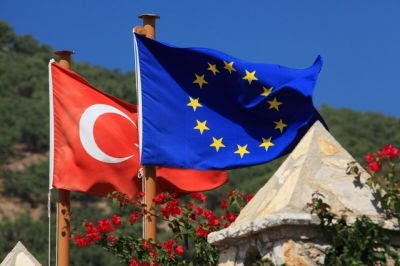Politics and Prayer

Politics and Prayer Paul has warned Timothy to expect opposition from two specific leaders in the church of Ephesus: Hymenaeus and Alexander. Far beyond giving Timothy a simple heads-up, Paul handed the two men "over to Satan that they may learn not to blaspheme." (1 Timothy 1:7) Paul's spiritual battle with these two men was not vindictive, at least not on Paul's part. Paul remembered that he was, not long ago, a worse sinner than even Hymenaeus and Alexander. He called himself a blasphemer, persecutor, and insolent opponent of Christ . For his transformation from sinner to saint, Paul credited God alone. "I received mercy for this reason, that in me, as the foremost, Jesus Christ might display his perfect patience as an example to those who were to believe in him for eternal life. To the King of ages, immortal, invisible, the only God, be honor and glory forever and ever. Amen." 1 Timothy 1:16-17 (ESV) Closely following Paul's giving over,



